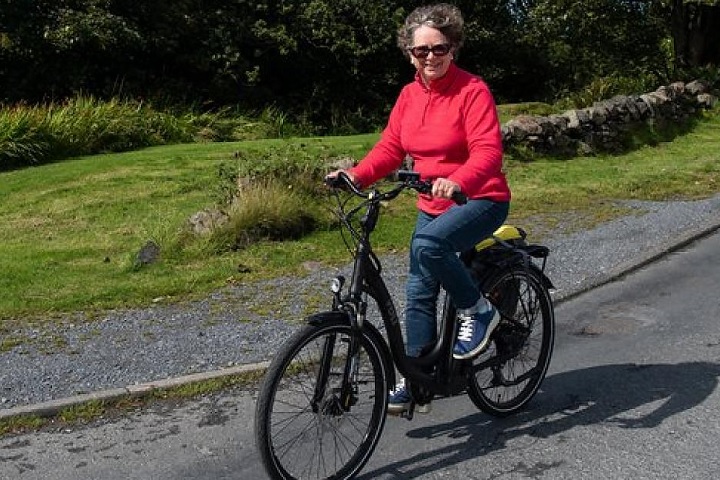
Image: Cycling UK
Cycling UK is launching a new project to get more people in rural and remote areas of Scotland walking, wheeling and cycling.
The Rural Connections project is specifically designed to meet the ‘unique needs’ of people cycling in Shetland, Orkney, Highland, Eilean Siar, Moray, Argyll and Bute and the Scottish Borders.
Cycling UK staff will be based in these seven areas and will support people of all ages, backgrounds and abilities to get active for everyday journeys as well as leisure and adventure trips.
This includes:
- Offering short and long-term cycle loans to help people find a cycle that works for them
- Supporting local organisations to coordinate and add walking, wheeling and cycling opportunities to their existing activities
- Upskilling volunteers to deliver activities in their communities – and keep cycles working if there is no local bike shop
- Building localised networks of organisations, communities and individuals to support walking, wheeling and cycling initiatives
Scotland has seen a surge in cycling during the coronavirus pandemic, with cycling journeys up 47% in the 12 months following the start of the first lockdown in March 2020.
In two of the areas featured in the project, Dunoon and Lerwick, Cycling Scotland’s counters recorded an increase of more than 100%.
However, car use remains high with 78% of people in rural and remote areas travelling for work or education by car compared with 65% in the rest of Scotland.
Fiona Johnston, Rural Connections senior project officer, said: “Cycling UK knows walking, wheeling and cycling improves people’s health and wellbeing but the benefits are wider than that. When more people choose to use their cars less, communities become more pleasant places, there can be an economic boost, so everyone in the community can benefit.
“For those living in rural and remote areas, even if you want to travel in an active way it can sometimes seem like there’s no other option than the car. Rural Connections aims to provide an alternative and the support many people need to make that change in behaviour.
“Our staff will be people who live and work in the communities themselves, as they have the best knowledge of what will work in their area.”
Comment on this story